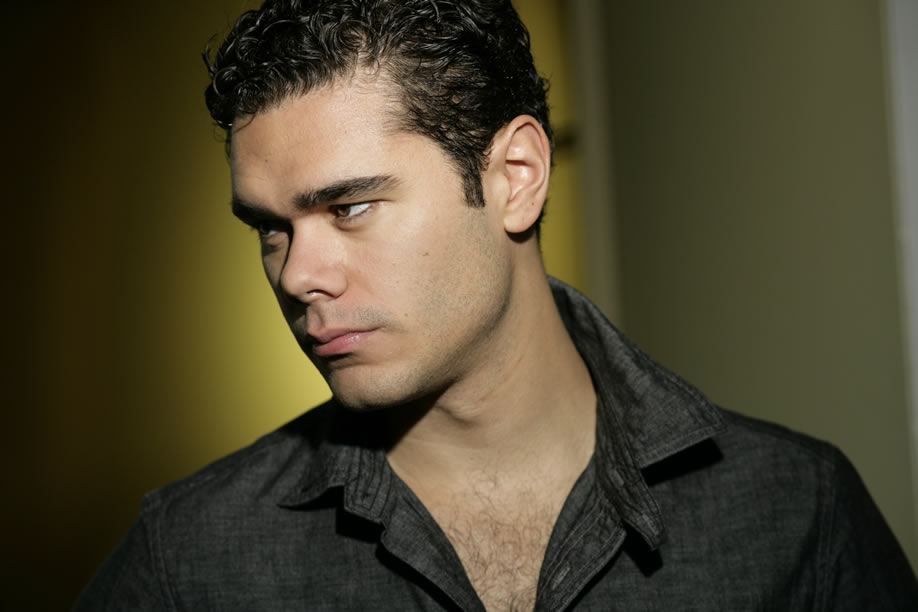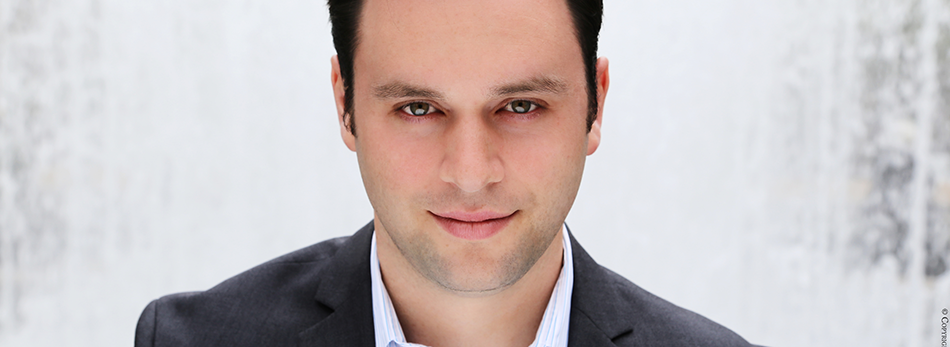THE HARD-HEARTED WILL TURN TO LOVE
Few operas are more delightful than Mozart’s Magic Flute (Die Zauberflöte), which fuses fantasy and adventure with high ideals and memorable melodies. Emmanuel Shikaneder’s Singspiel libretto is suffused with masonic elements, emphasizing the triumph of reason, nature, and wisdom over the forces of darkness and superstition. But there are contradictions too, especially concerning the brotherhood’s attitudes toward women and slaves. This weekend, however, you don’t need to concern yourself with its moral philosophy and social criticism, or dialogue for that matter: Maestro Dudamel and the Los Angeles Philharmonic are offering 50 minutes of the best arias of this enchanting opera as part of L.A. Phil’s Mozart 1791: Gustavo Conducts Music from Mozart’s Final Year, two weekend-long programs that celebrate the Salzburgian genius composer who died at 35 just two months after The Magic Flute‘s premiere.
The second week’s program (which opened last night and plays through Sunday Oct. 8) began with Wolfgang Amadeus Mozart’s rightly popular Clarinet Concerto, which was his last instrumental piece, and one of his most emotional concertos.
With his awesome breath control and emotional intent, guest soloist Martin Fröst offered a rich and joyous interpretation, complimented by Dudamel’s perky tempo in the first movement (slowing down Mozart isn’t the best way to honor his legacy), and a good clip in the third (although just once I would love to hear these two movements even quicker, the way that Jaap van Zweden thundered through Beethoven’s Fifth last March). Dudamel’s pace in the first movement was so lively that a few passages seemed to presage Beethoven’s Pastoral Symphony.
The Stockholm-based, 46-year-old Fröst brought a combination of strength and tenderness to the Adagio, the second and best-known movement. He’s also a wonderful communicator physically: Standing higher than Dudamel stood on the podium, the tall, tow-headed blonde sashayed from one foot to the other while keeping the pianissimo passages profoundly sweet. His low register—woody, full of color and warmth—confirms why Mozart had fallen in love with this (at the time) fairly new instrument.
Even more stunning than the final movement “Rondo: Allegro”—which went from surreptitious to mysterious to jocular with a fascinating combination of legato and staccato notes—was Fröst’s encore: A mystical interpretation of “Nature Boy,” the 1948 hit single recorded by Nat “King” Cole. Accompanied by cellist Robert deMaine, who sustained one long note, Fröst riffed in a style that hovered between jazz, classical, and Klezmer. The Eastern European sound was fitting given that the tune’s composer, eden ahbez [sic], a nomad who lived under one of the “L”s of the HOLLYWOOD sign, was sued by Yiddish Theater composer Herman Yablokoff for stealing the melody from one of his songs, “Shvayg mayn harts” (“Be Still My Heart”) and was awarded $25,000 in an out-of-court settlement. But part of the tune can also be heard in Dvořák‘s Piano Quintet in A Major, Op. 81, so will the real goniff please stand up?
Of the sixteen Magic Flute selections, two were instrumentals—a forgettable “March of the Priests” and a stately, sharp “Overture” featuring timpanist Joseph Pereira (uncharacteristically, Dudamel had the scores in front of him). Often, opera casts can be uneven, but you won’t find a stronger ensemble, each formal wear-clad member offering committed acting as if their scene—each one lit differently—was plucked from a production.
The standout was Canadian Elliot Madore (pictured above) as the bird-catcher Papageno. Madore—who, along with the entire cast had his arias memorized—had adorable, expressive facial features and an expansive, luxurious baritone. He mimed on a pan flute, but the sound came from Sarah Jackson’s piccolo; and later, during “Ein Mädchen oder Weibchen,” we were treated to Joanne Pearce Martin creating a tinkling toy piano-sound on the keyboard glockenspiel.
Later, Madore was joined by the delightful soprano Vanessa Becerra for the tantalizing, tenacious, terrific, tongue-twisting “Papagena! Papagena!”—one of the evening’s highlights.
Tenor Paul Appleby (above) made a funny entrance as Prince Tamino, scurrying up the side of the stage to a playing area behind the orchestra. There, his “Der Vogelfänger bin ich, ja” was joined by soprano Gabriella Reyes de Ramirez and mezzos Emily d’Angelo and Sara Couden, the latter positively projecting those resounding low notes to the rafters; all Three Ladies were strong and well-balanced (while low in volume, the boy spirits’”Jack Fagan, Brandon Takahashi, Enzo Grappone’”who guide our heroes on their journey, also blended perfectly). It’s a matter of taste, but the very strong Appleby sounded almost Wagnerian, when this role sounds better when one sings the head voice sweetly and builds overtone. Still, he was great in “Dies Bildnis ist bezaubernd schön,” and he was well-anchored in the awesome quintet “Hm! Hm! Hm! Hm!”—another highlight for Madore, whose closed-mouth “Hum”s were intense.
Australian soprano Jessica Pratt’s Queen of the Night was an audience favorite; she sang the famous aria “Der Hölle Rache” with requisite crispness, grace and agility (although for the life of me, the bouncy music never sounds like Hell’s vengeance is boiling her heart), and I could make out every word in “O zittre nicht,” and I don’t even speak German. Julia Bullock (above) provided a lustrous, lissome soprano as Pamina, and Brian Michael Moore and Chung Uk Lee as the Armored Men left a lasting impression with little stage time, projecting their mellifluous voices into next week.
The only thing that wasn’t magic was a ticking noise from a lighting instrument, and the many sounds from some select patrons: teeth-sucking, side-talking, camera clicking, program rolling, plastic water bottle-crunching, and more. It was boiling my heart…
photo of Elliot Madore by Kristin Hoebermann
other photos courtesy LA Phil
Mozart 1791
Clarinet Concerto & scenes from The Magic Flute
Los Angeles Philharmonic
Gustavo Dudamel, conductor
ends on October 8, 2017
for tickets, call 323.850.2000 or visit LA Phil







{ 2 comments… read them below or add one }
Thank you for the review.
When you say “Tenor Paul Appleby (above) made a funny entrance as Prince Tamino, scurrying up the side of the stage to a playing area behind the orchestra. There, his “Der Vogelfänger bin ich, ja†was joined by soprano Gabriella Reyes de Ramirez and mezzos Emily d’Angelo and Sara Couden, the latter positively projecting those resounding low notes to the rafters…”
This is not a tenor aria.
You are right! That aria belongs to Papageno.